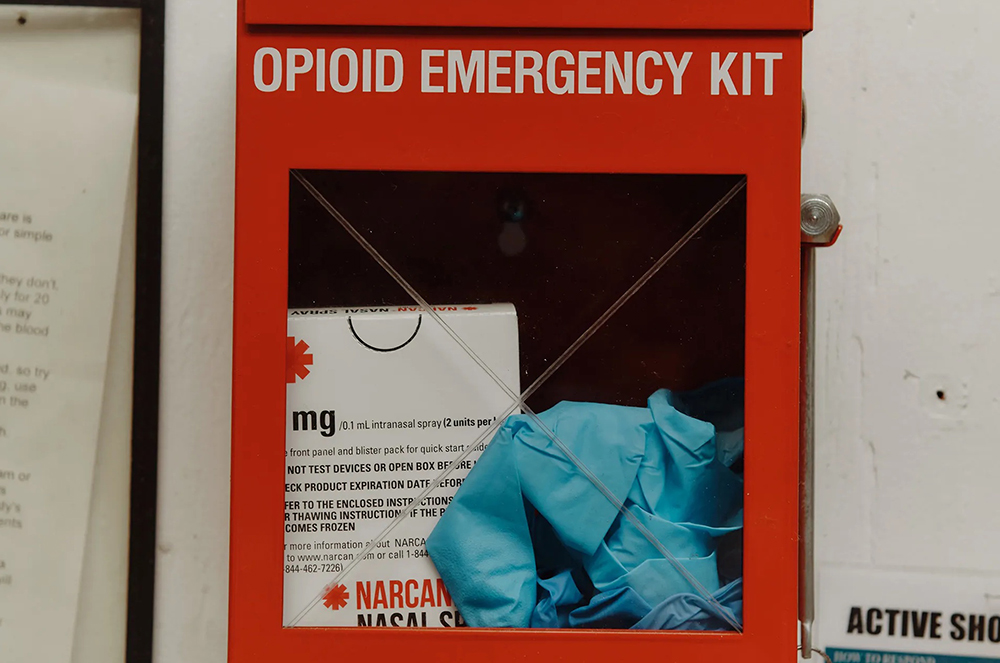
对于有意培养康复友好型企业文化的雇主来说,起步可能会很艰难。美国劳工部(U.S. Department of Labor)在其“康复就绪工作场所”(Recovery-Ready Workplace)资源中心提供了指导,并提供了入门材料。早期采用者和倡导者也乐于分享最佳实践。我们在这里收集了他们的一些建议。
提供多种获取康复资源的途径
对管理人员进行培训,让他们为有关戒毒康复的谈话做好准备,但要记住,员工可能不愿意将个人的挣扎告诉老板、主管或人力资源部门。广泛分享所有可获得的求助途径信息,特别是那些属于员工福利的信息。
消除对药物滥用障碍的污名化,破除误区
积极消除与药物滥用障碍相关的错误信息、旧观念和污名。相关教育不是一劳永逸的,它将是一个持续的过程,有时需要反复分享相同的信息。
放大有亲身经历的员工的声音
无论他们是否愿意承认,在你的工作场所,很可能有人正在康复过程中。任何人都不应该迫于压力而透露自己不愿意透露的信息,但值得强调的是,那些愿意分享自己生活经历的人将会得到鼓励,而不是羞辱。通常,只要有一个人分享自己的故事,就能为其他人创造空间来做同样的事情。
自上而下展开
如果没有高层领导的大力支持,很难改变职场文化,也很难带动那些心存怀疑或不信任的员工。
寻求专家建议和培训资源
你不必孤军奋战。地方、州和联邦公共卫生和社会服务提供者可以提供专业知识和相关资源。有些州还会为雇佣处于戒毒康复过程中的员工提供财政激励,这也会有所帮助。
最重要的是,做一个富有同情心的人
萨曼莎·莱万多夫斯基说,当员工分享关于悲伤、创伤或个人挣扎的信息时,记得停下来倾听对方的声音。她是新罕布什尔州州长康复友好型工作场所(RFW)倡议的项目主管,该倡议由Granite United Way管理:“同理心……非常简单,但却能带来改变。”(财富中文网)
本文另一版本刊登于《财富》杂志2023年8—9月刊。
译者:中慧言-王芳
对于有意培养康复友好型企业文化的雇主来说,起步可能会很艰难。美国劳工部(U.S. Department of Labor)在其“康复就绪工作场所”(Recovery-Ready Workplace)资源中心提供了指导,并提供了入门材料。早期采用者和倡导者也乐于分享最佳实践。我们在这里收集了他们的一些建议。
提供多种获取康复资源的途径
对管理人员进行培训,让他们为有关戒毒康复的谈话做好准备,但要记住,员工可能不愿意将个人的挣扎告诉老板、主管或人力资源部门。广泛分享所有可获得的求助途径信息,特别是那些属于员工福利的信息。
消除对药物滥用障碍的污名化,破除误区
积极消除与药物滥用障碍相关的错误信息、旧观念和污名。相关教育不是一劳永逸的,它将是一个持续的过程,有时需要反复分享相同的信息。
放大有亲身经历的员工的声音
无论他们是否愿意承认,在你的工作场所,很可能有人正在康复过程中。任何人都不应该迫于压力而透露自己不愿意透露的信息,但值得强调的是,那些愿意分享自己生活经历的人将会得到鼓励,而不是羞辱。通常,只要有一个人分享自己的故事,就能为其他人创造空间来做同样的事情。
自上而下展开
如果没有高层领导的大力支持,很难改变职场文化,也很难带动那些心存怀疑或不信任的员工。
寻求专家建议和培训资源
你不必孤军奋战。地方、州和联邦公共卫生和社会服务提供者可以提供专业知识和相关资源。有些州还会为雇佣处于戒毒康复过程中的员工提供财政激励,这也会有所帮助。
最重要的是,做一个富有同情心的人
萨曼莎·莱万多夫斯基说,当员工分享关于悲伤、创伤或个人挣扎的信息时,记得停下来倾听对方的声音。她是新罕布什尔州州长康复友好型工作场所(RFW)倡议的项目主管,该倡议由Granite United Way管理:“同理心……非常简单,但却能带来改变。”(财富中文网)
本文另一版本刊登于《财富》杂志2023年8—9月刊。
译者:中慧言-王芳
For employers interested in cultivating a recovery-friendly culture, getting started can be daunting. The U.S. Department of Labor offers some guidance at its Recovery-Ready Workplace resource hub and provides materials to get started. Early adopters and advocates happily share best practices too. We’ve collected some of their tips here.
Provide multiple avenues for accessing recovery resources
Train managers so they’re prepared for conversations about recovery, but remember that employees may not be comfortable taking their personal struggles to the boss, their supervisor, or HR. Widely share information about all available ways to seek help, particularly those that are part of employee benefits.
Destigmatize substance-use disorder, and debunk myths
Actively combat misinformation, outdated attitudes, and the stigma associated with substance-use disorder. Education isn’t a one-and-done deal; it will be an ongoing process and sometimes involve sharing the same messages over and over again.
Amplify the voices of employees with lived experience
Whether they feel empowered to acknowledge it or not, there are likely people in recovery in your workplace. Nobody should feel pressured to disclose more than they’re comfortable with, but it’s worth putting out the message that those willing to share their lived experience will be encouraged, not stigmatized. Often just one person sharing their story can create space for others to do the same.
Lead from the top
It’s hard to change workplace culture—and to bring along a workforce that may be skeptical or distrusting—without the strong backing of the most senior leaders.
Seek expert advice and training resources
You don’t have to go it alone. Local, state, and federal public health and social service providers can offer expertise and resources. Some states offer financial incentives for hiring workers in recovery, which can be helpful too.
Most of all, be a compassionate human
When employees share information about grief, trauma, or personal struggle, remember to stop for a moment and listen, says Samantha Lewandowski, program director for the New Hampshire Governor’s RFW initiative, which is administered by the Granite United Way: “Empathy … is so painfully simple, but it makes a difference.”
A version of this article appears in the August/September 2023 issue of Fortune.






